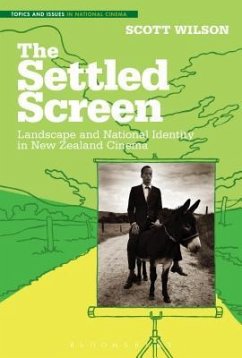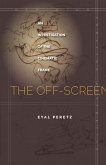The Settled Screen: Landscape and National Identity in New Zealand Cinema is the first title to explore the relationship between the representation of landscape and the development of both a national cinema and a national identity. Through the early years of New Zealand's cinema, prior to any formalized governmental support, those few feature length narrative films repeated wholesale the modes of representing the landscape and its inhabitants, while the developing documentary and travelogue industries would construct the fantasy of 'Maoriland' with New Zealand becoming internationally known as a green paradise, a Pacific idyll with an exotic, tamed, indigenous population. This precursor of the now contemporary 'Brand New Zealand' - itself a modern, politically-corrected version of these earlier narratives - would be adjusted and amended over time, especially with the formation of the New Zealand Film Commission in the late 1970s, but never entirely discarded. Beginning with a discussion on films in which landscape - and particularly the colonial or settler landscapes - have been represented in other Western cinemas, like The Searchers and Thelma & Louise, Wilson compares in indigenous films like Whale Rider, To Love a Maori and The Piano to exemplify the simultaneous strands of New Zealand cinema: a way of marketing the country based on the success of such spectacular films as Peter Jackson's Tolkien epics, and the simultaneous attempts by Maori, immigrant and minority filmmakers to find a way to represent other stories in this land without recourse to the tropes of a by-now dominant national industry.
Hinweis: Dieser Artikel kann nur an eine deutsche Lieferadresse ausgeliefert werden.
Hinweis: Dieser Artikel kann nur an eine deutsche Lieferadresse ausgeliefert werden.








